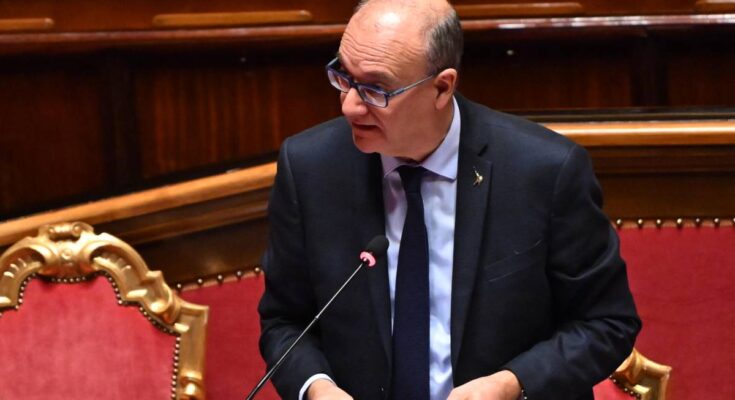There is a danger that has been identified by the government and the majority of society: that Italian schools, once places of education and growth, could turn into laboratories for ideological experimentation. The goal, stated by Education Minister Giuseppe Valditara, is to return these institutions to their original mission: to educate, not indoctrinate. And do this in a climate that is calm, transparent, and respectful of family roles.
In recent months, the debate over the Valditara bill on sexual education has brought the topic of “emotional education” projects back into the public spotlight, which, according to many parents, convey inappropriate content. There are many examples – which have not escaped the attention of the majority and also the Ministry of Education. In particular, about ten recent cases are analyzed, almost all of them relate to the year 2025. Among them is the case of Florence where, in primary and lower secondary schools, the project “In schools to make a difference” proposes games, videos and lessons about “countless gender identities”, with classroom testimonies from LGBTQIA+ volunteers. In L’Aquila, an institute has signed an agreement with Arcigay to bring “educational and training” activities into the classroom aimed not only at students, but also at school staff and parents, with the aim of fighting stereotypes and discrimination. In Torrita di Siena, colored aprons were introduced in the nursery school to “overcome gender stereotypes”, a choice that raised doubts among parents. In Lucca, external experts are giving children lessons on biological sex, gender perception and the deconstruction of stereotypes, as part of a three-year project financed by the Region with a grant of 600 thousand euros. In Rome, a municipal tender of 420 thousand euros financed fifteen “affective and relational education” projects in secondary schools. On the island of Elba, the book “Alias” by Matteo Grimaldi, a story of a teenager dealing with the topic of gender transition, was distributed free of charge to students. Just as the distribution of books with explicit sexual content in Fiumicino to children as a gift to the school for participating in the Gianni Rodari centenary competition gave rise to much discussion. However, the cases that triggered parents’ protests were actually numerous and spread throughout the country.
According to Pro Vita, these interventions often introduce complex and controversial concepts early on. The association highlighted how this kind of project has been launched in more than 300 Italian institutions, while a petition has gathered almost 50 thousand signatures, asking for clear rules regarding informed consent.
The Valditara Bill, which began examination in the DPR today, was created precisely to introduce more precise rules and guidelines. These rules, which introduce the principle of family consensus and regulate the participation of external experts, aim to restore balance and transparency. “We do not want censorship, but to protect parents’ educational freedom,” explained the Minister of Finance.
Senator Mariastella Gelmini expressed her opinion in similar terms: “Two years after the murder of the woman Giulia Cecchettin, it is clear that education in respect is necessary. But education must be balanced, uniting school and family, not a platform for ideological theories. Education in respect, not indoctrination.”
For Northern League member Rossano Sasso “Pd, M5 and Avs do not like the fact that, thanks to our law, schools can no longer be used as a stage to talk to children from 6 years old about sexual binarism, sexual confusion, transition and rented wombs. We are on the side of the family and the freedom of educational choice”.



